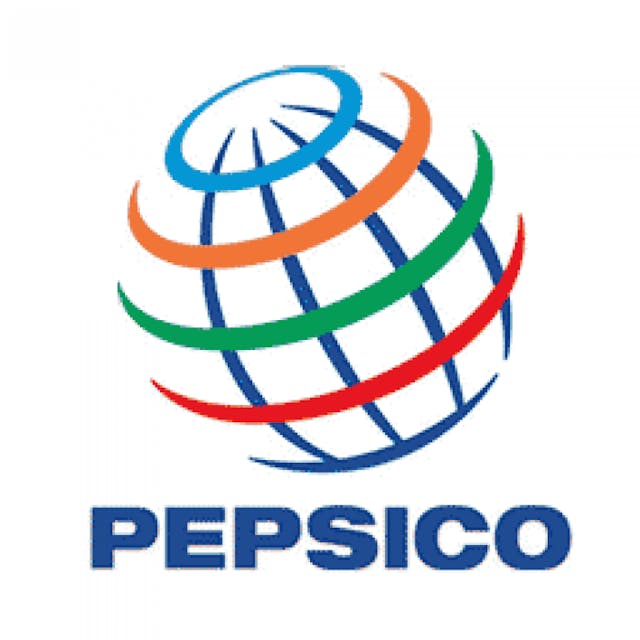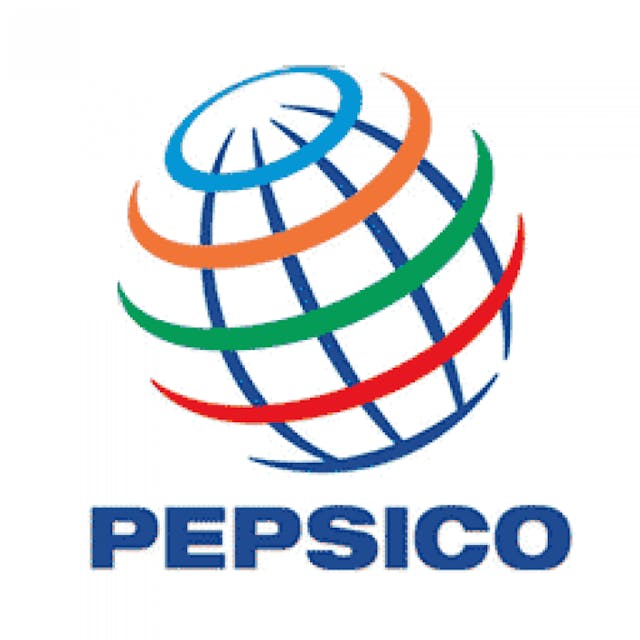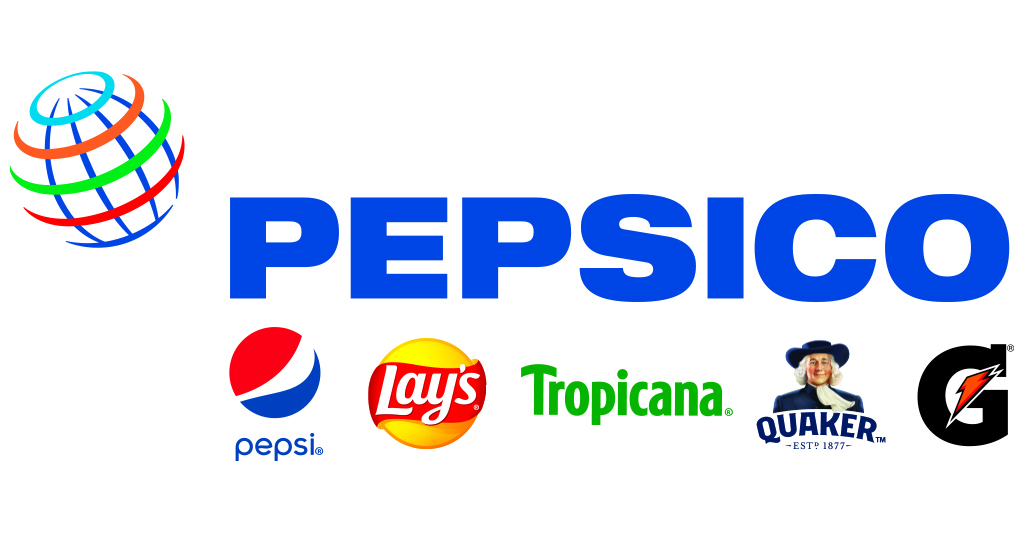What to Expect From PepsiCo Q3 Earnings Results

Deutsche Bank provided its outlook on the upcoming Q3 results (Oct 5) of PepsiCo, Inc. (NASDAQ:PEP), mentioning that they are positively biased for upside to the consensus estimates and full-year guidance around organic growth, with only some doubt around EPS due to known cost inflation and supply-chain headwinds.
In terms of costs, the brokerage noted that spot commodity inflation will likely become a bigger headwind sequentially vs. Q2 (despite the company's forward buying/structural hedging strategies) and will likely be made worse by industry-wide labor pressures and potential supply-chain bottlenecks—even if the brokerage sees the company in a better position to navigate such challenges versus many peers given scale advantages, established productivity initiatives, and increasingly well-developed revenue growth management strategies.
| Symbol | Price | %chg |
|---|---|---|
| KO.BA | 20740 | 0.29 |
| PEP.BA | 12240 | 0.65 |
| CLEO.JK | 520 | -0.96 |
| ADES.JK | 13500 | 3.15 |

PepsiCo, Inc. (NASDAQ:PEP) Analyst Update and Earnings Outlook
PepsiCo, Inc. (NASDAQ:PEP) is a global leader in the food and beverage industry, known for its diverse product portfolio, including brands like Pepsi, Mountain Dew, and Lay's. The company competes with other giants like Coca-Cola and Nestlé.
On July 17, 2025, Morgan Stanley updated its rating for PepsiCo to "Equal-Weight," maintaining a "hold" action, with the stock priced at $135.35. PepsiCo is set to release its second-quarter earnings results, with analysts expecting earnings of $2.03 per share, down from $2.28 per share in the same quarter last year.
The anticipated quarterly revenue is $22.3 billion, slightly lower than the $22.5 billion reported a year earlier. This reflects a cautious outlook for the company's financial performance. Ahead of the earnings release, PepsiCo's shares saw a 1.2% increase, closing at $135.35.
The stock's price today has ranged from $133.77 to $135.49, with a year-high of $180.91 and a low of $127.60. The company's market capitalization stands at approximately $185.58 billion, indicating its significant presence in the market.
In recent developments, PepsiCo and Cargill announced a strategic collaboration to advance regenerative agriculture practices across 240,000 acres from 2025 through 2030. This initiative underscores PepsiCo's commitment to sustainability, aligning with broader industry trends towards environmentally friendly practices.

PepsiCo (NASDAQ:PEP) Maintains "Overweight" Rating by J.P. Morgan
- J.P. Morgan reaffirms an "Overweight" rating for PepsiCo (NASDAQ:PEP), indicating a positive outlook on the stock.
- PepsiCo offers an attractive dividend yield of over 4%, showcasing a strong commitment to shareholder returns with a 53-year growth streak in dividends.
- The company's market capitalization stands at approximately $183.43 billion, reflecting its significant market presence and long-term growth potential.
On April 29, 2025, J.P. Morgan maintained its "Overweight" rating for PepsiCo (NASDAQ:PEP), with the recommendation being a hold. At the time, the stock price was $133.76. PepsiCo is a global leader in the salty snacks and non-alcoholic beverages sector, competing with companies like Coca-Cola and Nestlé.
PepsiCo offers an attractive dividend yield of over 4%, which is appealing to income-focused investors. The company has a remarkable 53-year growth streak in dividends, indicating a strong commitment to returning value to shareholders. Despite a slightly higher-than-ideal payout ratio, PepsiCo is expected to continue its dividend growth.
The stock price of PEP is currently $133.76, showing a minor change of $0.38, or 0.28%. Today, the stock has fluctuated between $133.11 and $135.41. Over the past year, PEP has seen a high of $183.41 and a low of $131.80, reflecting some volatility in its trading range.
PepsiCo's market capitalization stands at approximately $183.43 billion, highlighting its significant presence in the market. The company continues to demonstrate strong long-term growth and market leadership through robust advertising, marketing, and strategic acquisitions, despite challenges like tariffs and economic uncertainty.
Today's trading volume for PEP is 8,489,020 shares on the NASDAQ exchange. This level of activity indicates a healthy interest in the stock, as investors weigh the company's strong fundamentals against broader market conditions.

PepsiCo (NASDAQ:PEP) Maintains "Overweight" Rating by J.P. Morgan
- J.P. Morgan reaffirms an "Overweight" rating for PepsiCo (NASDAQ:PEP), indicating a positive outlook on the stock.
- PepsiCo offers an attractive dividend yield of over 4%, showcasing a strong commitment to shareholder returns with a 53-year growth streak in dividends.
- The company's market capitalization stands at approximately $183.43 billion, reflecting its significant market presence and long-term growth potential.
On April 29, 2025, J.P. Morgan maintained its "Overweight" rating for PepsiCo (NASDAQ:PEP), with the recommendation being a hold. At the time, the stock price was $133.76. PepsiCo is a global leader in the salty snacks and non-alcoholic beverages sector, competing with companies like Coca-Cola and Nestlé.
PepsiCo offers an attractive dividend yield of over 4%, which is appealing to income-focused investors. The company has a remarkable 53-year growth streak in dividends, indicating a strong commitment to returning value to shareholders. Despite a slightly higher-than-ideal payout ratio, PepsiCo is expected to continue its dividend growth.
The stock price of PEP is currently $133.76, showing a minor change of $0.38, or 0.28%. Today, the stock has fluctuated between $133.11 and $135.41. Over the past year, PEP has seen a high of $183.41 and a low of $131.80, reflecting some volatility in its trading range.
PepsiCo's market capitalization stands at approximately $183.43 billion, highlighting its significant presence in the market. The company continues to demonstrate strong long-term growth and market leadership through robust advertising, marketing, and strategic acquisitions, despite challenges like tariffs and economic uncertainty.
Today's trading volume for PEP is 8,489,020 shares on the NASDAQ exchange. This level of activity indicates a healthy interest in the stock, as investors weigh the company's strong fundamentals against broader market conditions.

PepsiCo (NASDAQ:PEP) Price Target and Financial Performance Review
- Evercore ISI analyst Robert Ottenstein sets a new price target of $140 for PepsiCo (NASDAQ:PEP), indicating a potential increase of about 3.47%.
- PepsiCo's first-quarter earnings and revenues fall short of expectations amidst rising trade-related costs and macroeconomic uncertainty.
- The company revises its full-year profit forecast downward, expecting constant currency earnings per share to remain flat and a low-single-digit rise in organic revenue.
On April 24, 2025, Robert Ottenstein from Evercore ISI set a price target of $140 for PepsiCo (NASDAQ:PEP). At the time, the stock was trading at $135.31, indicating a potential increase of about 3.47% to reach the target. This target was revised down from a previous $155, as highlighted by TheFly. PepsiCo, a global leader in the food and beverage industry, faces competition from companies like Coca-Cola and Nestlé.
PepsiCo's first-quarter earnings and revenues have fallen short of expectations. The company is grappling with rising trade-related costs and macroeconomic uncertainty, which are expected to further increase supply-chain expenses. Despite these challenges, PepsiCo shows resilience in navigating global issues. The company has revised its full-year profit forecast downward due to increased supply chain costs driven by tariffs and a challenging consumer environment.
In its first-quarter earnings report, PepsiCo announced that it now anticipates constant currency earnings per share to remain flat compared to the previous year. This is a reduction from its earlier prediction of mid-single-digit growth. Despite this, PepsiCo still expects a low-single-digit rise in organic revenue. CEO Ramon Laguarta commented on the situation, highlighting the expected increase in supply chain costs due to global trade developments.
PepsiCo reported a 1.8% decline in revenue for the first quarter, totaling $17.92 billion, which surpassed Wall Street's expectations of $17.73 billion. However, the adjusted earnings per share of $1.48 fell short of the anticipated $1.50. The current price of PEP is $135.31, reflecting a decrease of 4.89% or $6.95. Today, the stock has fluctuated between a low of $134.53 and a high of $141.85.
Over the past year, PEP has reached a high of $183.41 and a low of $134.53. The company's market capitalization stands at approximately $185.55 billion. The trading volume for PEP is 15.50 million shares on the NASDAQ exchange. Despite the challenges, PepsiCo remains a significant player in the market, continuing to adapt to the evolving economic landscape.

PepsiCo (NASDAQ:PEP) Price Target and Financial Performance Review
- Evercore ISI analyst Robert Ottenstein sets a new price target of $140 for PepsiCo (NASDAQ:PEP), indicating a potential increase of about 3.47%.
- PepsiCo's first-quarter earnings and revenues fall short of expectations amidst rising trade-related costs and macroeconomic uncertainty.
- The company revises its full-year profit forecast downward, expecting constant currency earnings per share to remain flat and a low-single-digit rise in organic revenue.
On April 24, 2025, Robert Ottenstein from Evercore ISI set a price target of $140 for PepsiCo (NASDAQ:PEP). At the time, the stock was trading at $135.31, indicating a potential increase of about 3.47% to reach the target. This target was revised down from a previous $155, as highlighted by TheFly. PepsiCo, a global leader in the food and beverage industry, faces competition from companies like Coca-Cola and Nestlé.
PepsiCo's first-quarter earnings and revenues have fallen short of expectations. The company is grappling with rising trade-related costs and macroeconomic uncertainty, which are expected to further increase supply-chain expenses. Despite these challenges, PepsiCo shows resilience in navigating global issues. The company has revised its full-year profit forecast downward due to increased supply chain costs driven by tariffs and a challenging consumer environment.
In its first-quarter earnings report, PepsiCo announced that it now anticipates constant currency earnings per share to remain flat compared to the previous year. This is a reduction from its earlier prediction of mid-single-digit growth. Despite this, PepsiCo still expects a low-single-digit rise in organic revenue. CEO Ramon Laguarta commented on the situation, highlighting the expected increase in supply chain costs due to global trade developments.
PepsiCo reported a 1.8% decline in revenue for the first quarter, totaling $17.92 billion, which surpassed Wall Street's expectations of $17.73 billion. However, the adjusted earnings per share of $1.48 fell short of the anticipated $1.50. The current price of PEP is $135.31, reflecting a decrease of 4.89% or $6.95. Today, the stock has fluctuated between a low of $134.53 and a high of $141.85.
Over the past year, PEP has reached a high of $183.41 and a low of $134.53. The company's market capitalization stands at approximately $185.55 billion. The trading volume for PEP is 15.50 million shares on the NASDAQ exchange. Despite the challenges, PepsiCo remains a significant player in the market, continuing to adapt to the evolving economic landscape.

Barclays Downgrades PepsiCo to Equalweight, Cites Near-Term Uncertainty in Snack Division
PepsiCo (NASDAQ:PEP) received a downgrade from Overweight to Equalweight by Barclays analysts, who lowered the price target to $156 from $168, citing near-term headwinds in the company’s Frito-Lay North America (FLNA) division.
As the market increasingly views PepsiCo as more of a U.S. food company, investor sentiment is closely tied to FLNA’s volume recovery. Barclays anticipates that it may take several more quarters before trends stabilize, particularly amid a more uncertain macroeconomic environment.
Despite the short-term struggles, the firm still sees FLNA capable of achieving sustainable volume growth of approximately 1.5% and organic sales growth (OSG) of around 3% over the long run. Beyond this division’s recovery, Barclays believes PepsiCo’s sales growth of 4-6% and profit growth of 7-9% remains achievable over the long term—though likely at the lower end of that range.
PepsiCo’s current valuation in the high-teens multiple reflects a balanced risk-reward outlook, according to Barclays. While FLNA’s near-term softness adds caution, the company’s strong international business and productivity initiatives help mitigate downside risk, supporting a baseline of 4% sales growth and 7% EPS growth in the long run.

Barclays Downgrades PepsiCo to Equalweight, Cites Near-Term Uncertainty in Snack Division
PepsiCo (NASDAQ:PEP) received a downgrade from Overweight to Equalweight by Barclays analysts, who lowered the price target to $156 from $168, citing near-term headwinds in the company’s Frito-Lay North America (FLNA) division.
As the market increasingly views PepsiCo as more of a U.S. food company, investor sentiment is closely tied to FLNA’s volume recovery. Barclays anticipates that it may take several more quarters before trends stabilize, particularly amid a more uncertain macroeconomic environment.
Despite the short-term struggles, the firm still sees FLNA capable of achieving sustainable volume growth of approximately 1.5% and organic sales growth (OSG) of around 3% over the long run. Beyond this division’s recovery, Barclays believes PepsiCo’s sales growth of 4-6% and profit growth of 7-9% remains achievable over the long term—though likely at the lower end of that range.
PepsiCo’s current valuation in the high-teens multiple reflects a balanced risk-reward outlook, according to Barclays. While FLNA’s near-term softness adds caution, the company’s strong international business and productivity initiatives help mitigate downside risk, supporting a baseline of 4% sales growth and 7% EPS growth in the long run.







